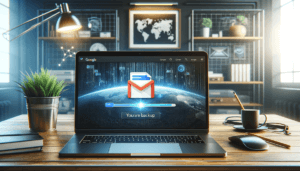In today’s digital age, your iPhone is not just a communication device but also a repository of personal and sensitive information. Protecting it against malware and phishing is crucial. This article will explore strategies for “Protecting against malware,” focusing on “iPhone phishing protection” and “malware defense.”
Protecting against malware on iphone
Understanding the Risks
Before delving into protection strategies, it’s essential to understand what malware and phishing attacks entail. Malware includes various types of malicious software designed to harm or exploit any programmable device or network. Phishing, on the other hand, is a technique used by cybercriminals to deceive you into providing personal information, such as passwords and credit card numbers.
Identifying Malware and Phishing Attempts
- Unexpected Messages and Emails: Be wary of messages or emails from unknown sources or those that request personal information.
- Suspicious Links and Attachments: Avoid clicking on links or downloading attachments from suspicious emails or messages.
- Unusual Device Behavior: If your iPhone starts behaving oddly, like crashing frequently or showing unexpected ads, it could be a sign of malware.
Protecting against Malware Your iPhone
- Regular Updates: Keep your iOS and apps updated. Apple frequently releases updates with security enhancements. Visit Apple Support for guidance on updating your iOS device.
- Use Strong Passwords: Strong, unique passwords for your Apple ID and other accounts can prevent unauthorized access. For more tips, see Apple’s password guidance.
- Enable Two-Factor Authentication: This adds an extra layer of security to your Apple ID. Learn how to set it up here.
- Download Apps from Trusted Sources: Only download apps from the App Store, which has strict security standards. More information on secure downloading is available on Apple Support.
- Be Aware of Phishing Scams: Learn to recognize phishing attempts. Apple’s phishing support page offers excellent resources.
- Use Secure Wi-Fi Networks: Avoid conducting sensitive transactions over unsecured public Wi-Fi networks. Consider using a VPN for additional security.
- Regular Backups: Regularly back up your iPhone. Apple provides guidance on backups here.
Antivirus Solutions for Your iPhone: Free and Commercial Options
While iPhones are renowned for their robust built-in security features, additional antivirus software can offer an extra layer of protection. Whether you opt for a free or commercial solution, antivirus software can provide peace of mind, especially when navigating the web or downloading files. Here’s a look at some options:
Free Antivirus Apps
- Avast Security & Privacy: Avast offers a free version that includes basic security features along with a Wi-Fi security scanner. It’s a good starting point for basic protection. Download it from the App Store.
- McAfee Mobile Security: This app provides security and system optimization features. The free version includes a secure VPN, anti-theft protection, and a media vault to protect your photos and videos. Get it here.
Commercial Antivirus Apps
- Norton Mobile Security: Norton offers a comprehensive security app that includes Web Protection, Wi-Fi Security, and Device Security. Although it’s a paid service, it’s well-regarded for its extensive features. Available for download at the App Store.
- Bitdefender Mobile Security: Known for its minimal impact on system performance and robust security features, Bitdefender is a great option for comprehensive protection. You can find it here.
Choosing the Right Antivirus
When selecting an antivirus app for your iPhone, consider factors like the level of security you need, the app’s impact on your device’s performance, and the credibility of the provider. While free versions offer basic protection, commercial versions typically provide more comprehensive security features.
Additional Resources
For more comprehensive information on iPhone security, visit our Complete Guide to iPhone Security. Additionally, explore various topics related to digital safety in our security section on the blog.
Conclusion
By understanding the threats and implementing these protective measures, you can significantly reduce the risk of malware and phishing attacks on your iPhone. Remember, staying informed and vigilant is your first line of defense in the digital world.


